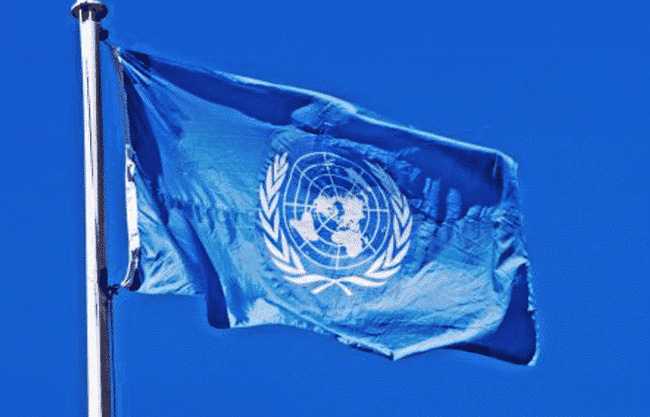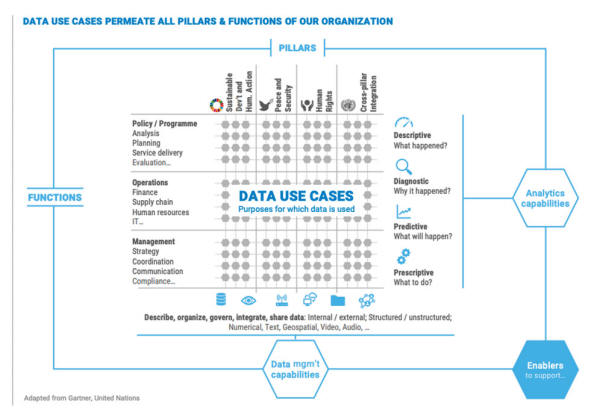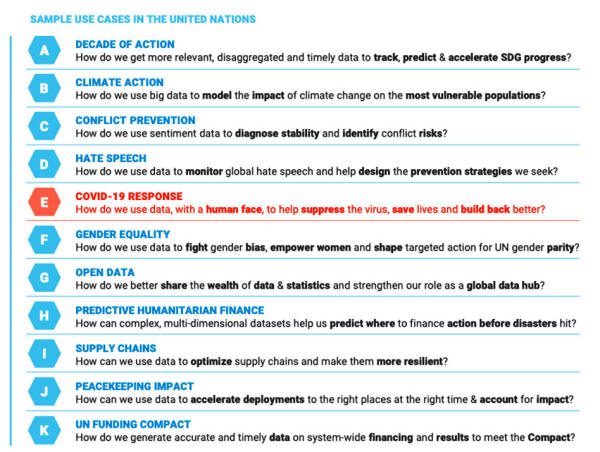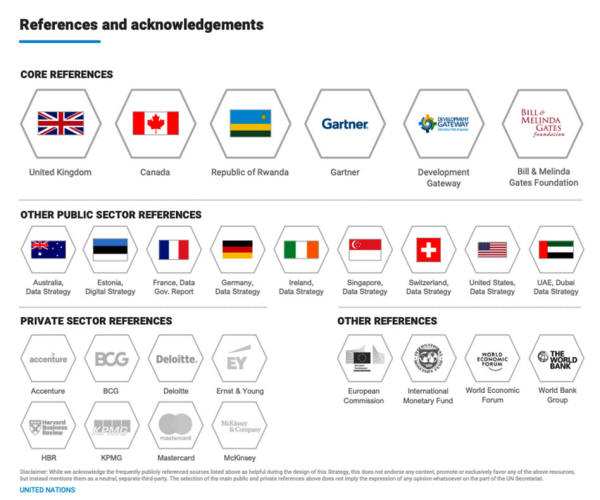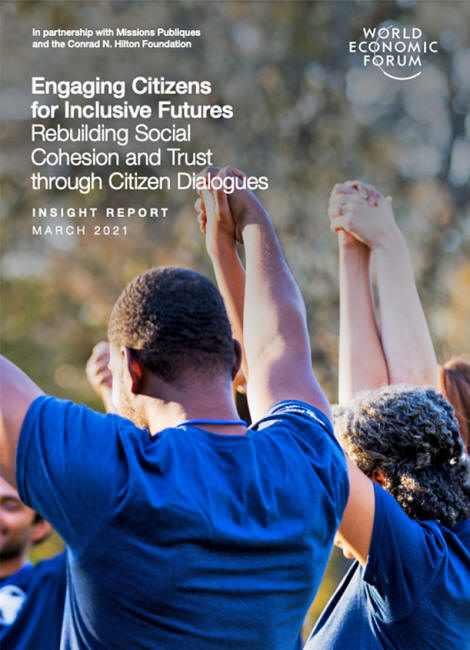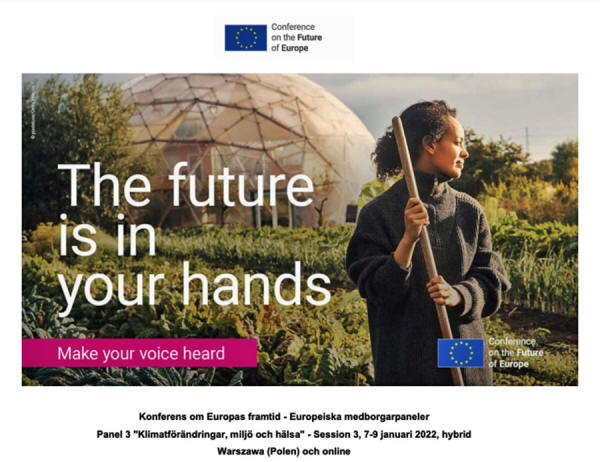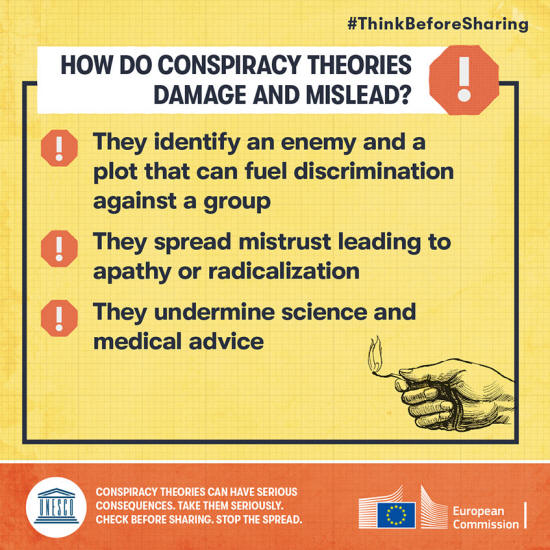|
by Jacob Nordangard, PhD
from
JacobNordangard Website
Listen in on the people...
But when looking closer, it seems to be mostly about legitimizing UNs own agenda and fostering more obedient citizens.
It also includes the re-establishment of the Secretary-General's Scientific Council and the UN taking part in more listening, participation, and consultation (including digitally) from the public.
Secretary-General António Guterres calls for a "Quintet of Change" for an upgraded UN 2.0: Innovation, Data, Strategic foresight, Results orientation, and Behavioural science.
According to Guterres, the United Nations needs to be adapted for the digital era.
The High-Level Advisory Board - which I described in the introductory post Multilateralism with teeth - will develop proposals for the following:
The United Nations intends to upgrade the global governance of the world...
This includes "listening" to the citizens.
The basis for everything is data.
According to the Secretary-General's data strategy, UN Secretary-General's Data Strategy 2020-22, this should permeate everything and lead us through the Great Transformation.
This data strategy means the upgrading and digitization of the United Nations. It outlines how to use all the data that is collected (Big Data, sensors/IoT, sound, image, text, etc.). 1
The global sustainable development goals (SDGs) of Agenda 2030 are to be reached with the help of digital technology.
This includes areas such as,
Data should not only be collected:
This is the digital crystal ball that will be used to monitor and predict world developments in order to take appropriate action:
This data collection has already begun and the goal is to have it fully operable by the year 2025.
COVID-19 provided an opportunity to test existing and developing technologies and gives an indication of how the collected data is intended to be used.
Among other things,
This is now to be applied to pretty much everything.
Partnerships with data specialists and various stakeholders are also proposed.
This includes, among other things, "data philanthropy programs" where data must be shared between public, private, and non-governmental organizations (NGOs).
The UN assures us that this must be done with respect for both human rights and privacy,
The strategy has been developed by the UN organisation together with consultative assistance from partners such as the World Economic Forum, the European Commission, the World Bank, Accenture, BCG, Deloitte, Ernst & Young, Harvard Business Review, McKinsey, and Mastercard. Special support has also been sourced from the governments of Great Britain, Canada and Rwanda, the consulting firm Gartner and the Bill & Melinda Gates Foundation, while "generous support" has been received from the UN Reform Unit at the UK's Foreign and Commonwealth Office.
Through behavioral analysis, the UN can gain knowledge about how citizens think and respond to the implementation of their programs and at the same time manage unwanted responses.
Strategies of this kind have already been used by the WHO in the context of COVID-19.
Another initiative is Climate Neutral Now, which aims to,
This constitutes a soft exercise of power where citizens are given "choices" but where they are encouraged to choose the goals that the UN has already established as worthy of pursuit.
Civic Participation
For the data strategy to be effective, citizens' data needs to be made available.
To achieve this, an enhanced dialogue is required.
This is what is meant by putting citizens at the center and that no one should be left behind.
It is total digital surveillance that applies to obtain protection and security with a "scorecard" for each individual.
Greater civic participation from citizens is seen by the UN as a guarantor of creating a better common future.
As described in the WEF report Engaging Citizens for Inclusive Futures Rebuilding Social Cohesion and Trust through Citizen Dialogues:
However, upon closer examination, the civic participation is all about supporting the UN and Agenda 2030 rather than raising any direct criticism.
A citizen dialogue, about what decisions needed to be made so that future generations would be proud of us, and which was held by the organizations,
...in December 2020 gave a clear message:
The question is,
There is no real space for critical voices...
The course has already been set and any views on climate and health that do not align with this are frowned upon. Instead, this citizen participation project seems to only be used to legitimize and drive the global transformation they intend to implement.
For example, the report specifically highlights that several participants in the citizen dialogue expressed concern about misinformation around COVID-19 being spread in the news and in social media.
According to the report, this shows the need for truthful communication from governments and authorities, but it is also emphasized that the citizens themselves are responsible for the misinformation they share.
This is where the "need" for UN truth verification comes in (see my previous post Ministry of Truth).
By using on a number of pre-determined questions to a select group of citizens regarding the creation of a just world, a biased selection of their views is made.
This applies, among other things, to the view on the distribution of vaccines:
It is also about the "climate crisis" being handled through "radical changes" to energy sources and that citizens "give their support" to the need for "a more inclusive and progressive education" where young people must "challenge the opinions of their parents/guardians" (just like under the Cultural Revolution in China)...
The latter is described as a way to create an environment without discrimination and with respect for others, but it has greater implications.
Among other things, this includes the current social trend of allowing children and youth to make life-changing decisions about gender corrections at a sensitive age. 3
In addition, it opens the door for manipulation of a group that lacks life experience and can thus be more easily influenced and controlled.
Young people are also generally more radical and open to system changes. This is a proven strategy in totalitarian systems and was tested on a large scale in Nazi Germany.
I will return to this in the post on Commitment 11 - Listen to and work with youth...
Not surprisingly, Jacinda Ardern's (a WEF Young Global Leader) New Zealand is highlighted in the report as a leading country in terms of popular support:
Conference on the Future of Europe
The report also mentions that the EU intends to strengthen citizen influence.
The EU acts in many ways as a testing ground for the UN agenda.
On this basis, an online Conference on the Future of Europe was held between April 2021 and May 2022 to give people from all over Europe the opportunity to share ideas on how to shape "our" common future. 4
At the center of citizen influence were 800 randomly selected citizens who were already part of the European Citizens' Panels four sub-panels (Economy, Democracy, Climate/Environment/Health and Migration) while 5 million people had visited a Multilingual Digital Platform to make contributions to the panel's work.
This resulted in 43,734 entries.
The participants had to express themselves in nine predetermined areas as well as the category "other questions".
These areas were:
The various topics were presented by external experts who also participated as resources during the conferences.
This procedure, of course, helped steer the panel in the direction desired by the Commission.
According to the President of the European Commission, Ursula von der Leyen, the collective reply from the citizens' dialogue was unequivocal:
The person who asks the questions and compiles the results has, of course, an interpretative priority.
In this case, it is presented as if the citizens have largely given their consent to the EU Commission's priorities (which fully coincide with Agenda 2030).
This applies in particular to the health agenda and the climate, where participants reportedly often expressed,
Coincidentally, the contributors also "emphasized" the need for continued digitization to deal with the climate as well as other future challenges.
This also concerns the issue of Digital Identity, which is increasingly becoming a cornerstone of the new system.
It also ties in with the EU's continued federalization and exercise of power.
Apparently, skepticism towards federalization were also expressed.
If one digs deeper into the report's elaboration, concerns are also expressed about digital surveillance as well as the treatment of unvaccinated people.
However, this did not make any major impression with the Commission and was not mentioned in the summary.
Instead, it is determined how free speech should be guaranteed by fighting hate speech, disinformation, conspiracy theories, and fake news. 6
This was something that the Commission worked on intensively during the 'pandemic' in order to deal with opposition to,
As part of work to "address the negative effects of conspiracy theories", the European Commission and UNESCO published educational infographics "to help citizens identify - and counter - conspiracy theories"...
UNESCO, in cooperation with the EU Commission and World Jewish Congress, initiated the project "Think Before Sharing" in order to stem the spread of conspiracy theories.
The view reflects that expressed by the World Economic Forum in its "Strategic Intelligence".
Serious criticism is deceptively mixed with the vast amount of real misinformation and unsubstantiated speculative theories that have spread online in recent years.
Von der Leyen's closing speech after the conference gave a clear indication of which points of view the Commission chooses to listen to, including giving the EU greater powers regarding health policy with binding regulations and decisions.
In June 2022, von der Leyen proposed how participatory democracy should become part of the EU's future decision-making.
Among other things,
But of course, the EU would never do such a mapping?
The question is,
Despite the fact that an overwhelming majority of submitted views opposed an extension of the EU's digital Covid Certificate until 30 June 2023, the Council gave the go-ahead to extend the regulation on 28 June 2022. 11
Already in the 2000s, the European Commission ran a public online forum where anyone could become a member (under any name) and express their opinions.
Unfortunately, the citizens did not express the "right" opinions (about e.g. the climate threat or the many intrusive EU directives...) and was therefore shut down around 2010.
It is this type of democratic commitment that Antonio Guterres now wants to implement for the UN as well. With listening that appears more like eavesdropping and where the purpose is to record and if necessary correct.
Everyone must join our common future…
ENDNOTES
|


